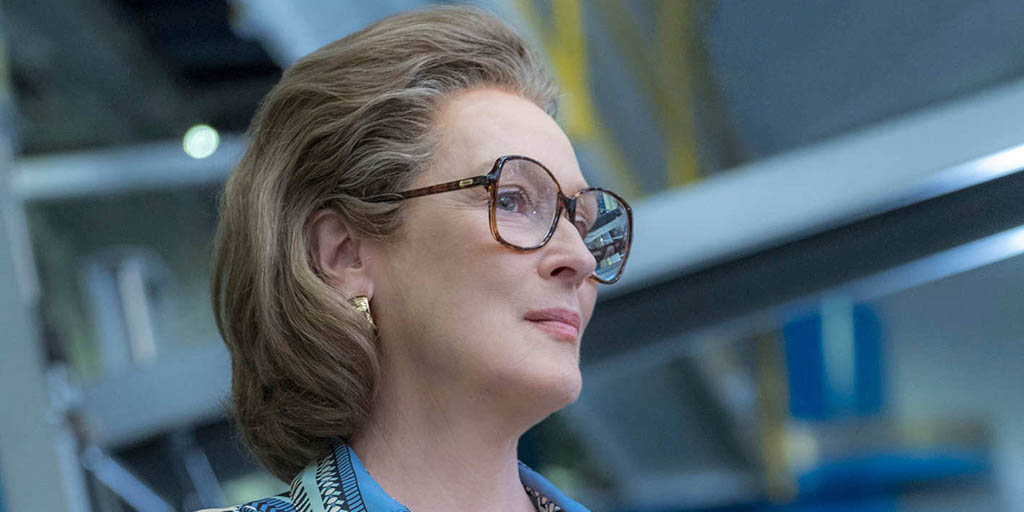The reason journalism matters
 CREDIT: DISTRIBUTED BY 20TH CENTURY FOX, UNIVERSAL PICTURES
CREDIT: DISTRIBUTED BY 20TH CENTURY FOX, UNIVERSAL PICTURESMeryl Streep as Kay Graham reminds us that the field of journalism is not an easy one, but the rewards of exposing the truth are unparalleled.
Warning: Mild spoilers about The Post
On Jan. 23, the 2018 Oscar nominations were announced. As a huge film buff, I was excited, and considering how I have already seen five out of the nine movies nominated for Best Picture, I think that is proof enough of my geekiness.
I was so happy to see that The Post starring Meryl Streep and Tom Hanks was nominated. As a journalist, it was wonderful to see journalists and our craft as the heroes of the story, rather than the enemy or the evil we are so often portrayed as being nowadays.
Don’t worry, I am not forgetting that only two years ago Spotlight won the Academy Award for Best Picture, another movie that puts journalists and their desire for the truth in the, well, in the spotlight.
But our world is a much different place than it was two years ago. Back then, “fake news” was not frequently heard on an almost daily basis.
In The Post, Streep plays Kay Graham, the publisher of the Washington Post (as well as the first ever female publisher in the United States) alongside Hanks as Ben Bradlee, editor of the Post. The film follows these two and their team of journalists as they help fellow newspaper rival The New York Times publish classified information about the Vietnam War that exposed the truth the government was hiding (what would later become known as the Pentagon Papers), and the ensuing Supreme Court case that reestablished freedom of the press in the United States.
There is an excellent sequence in the movie where the characters are rifling through thousands of pages of documents mere hours before their print deadline and are debating whether or not they go against a Federal indictment prohibiting publishing the papers in the name of national security, putting freedom and access to information above all. The back and forth debate weighing the pros and cons of their actions are a wonderful example of ethical debates that go on in the news industry every day.
Some spoilers in the next paragraph ahead. The Times and The Post eventually win their case against the government, reminding us all that no one, not even the government, should be allowed to deceive those they represent and work for, and that it is the responsibility of journalists to make sure the truth is uncovered, even under the threat of facing time in prison. The same can be said for the Watergate scandal that soon followed the Pentagon Papers, which eventually led to President Richard Nixon stepping down amid the scandal of a government-sanctioned cover up of criminal activity. Again, this scandal was uncovered thanks to the hard work of journalists who would not allow anyone, not even the president of the United States, to be held to a higher standard than anyone else.
Now, this huge news story took place in the 1970s, almost 50 years ago. It seems that in the past half decade any respect or trust once held towards journalists has spiraled out of control.
According to a Gallup poll from September 2016, only 32 per cent of Americans had a great deal/fair amount of trust in mass media, down 21 per cent in just under 20 years. And if anything, that number has likely dropped even more thanks to the war on press currently raging on. Additionally, a December 2013 Gallup poll places journalists, both TV and newspaper, in the bottom half of trusted professions (rated 20 per cent and 21 percent trustworthy, respectively) alongside lawyers, advertising practitioners, state officeholders, car salespeople, Members of Congress and lobbyists.
This is truly horrifying information, because people should be able to trust the information being reported. But with the declining nature of the journalism industry and the demand for quantity over quality in order to be more profitable, the hard work that was once so valued in this field has now become unprofitable. And with the problem of media conglomerates controlling what is and is not published, the truth has become harder to find in our age. But that does not mean it is impossible.
Journalism is important and it matters, now more than ever. Without the hard work of relentless journalists, there would be no one to hold anyone accountable for their actions. I am aware of the problems in the industry I have chosen, but that does not mean we should just give up. There are genuinely good people doing important work in this field, often for little pay and for long hours, and it is our duty as responsible citizens to seek them out.
The Post may not win Best Picture (personally, I am hoping Three Billboards Outside Ebbing, Missouri takes home the top prize), but if you take away anything from it or this article, just remember that journalists don’t inherently suck or want to deceive you. It’s a tough world to be a journalist, but just like you, we just want the truth. We just have to find it first.
Editorial opinions or comments expressed in this online edition of Interrobang newspaper reflect the views of the writer and are not those of the Interrobang or the Fanshawe Student Union. The Interrobang is published weekly by the Fanshawe Student Union at 1001 Fanshawe College Blvd., P.O. Box 7005, London, Ontario, N5Y 5R6 and distributed through the Fanshawe College community. Letters to the editor are welcome. All letters are subject to editing and should be emailed. All letters must be accompanied by contact information. Letters can also be submitted online by clicking here.














